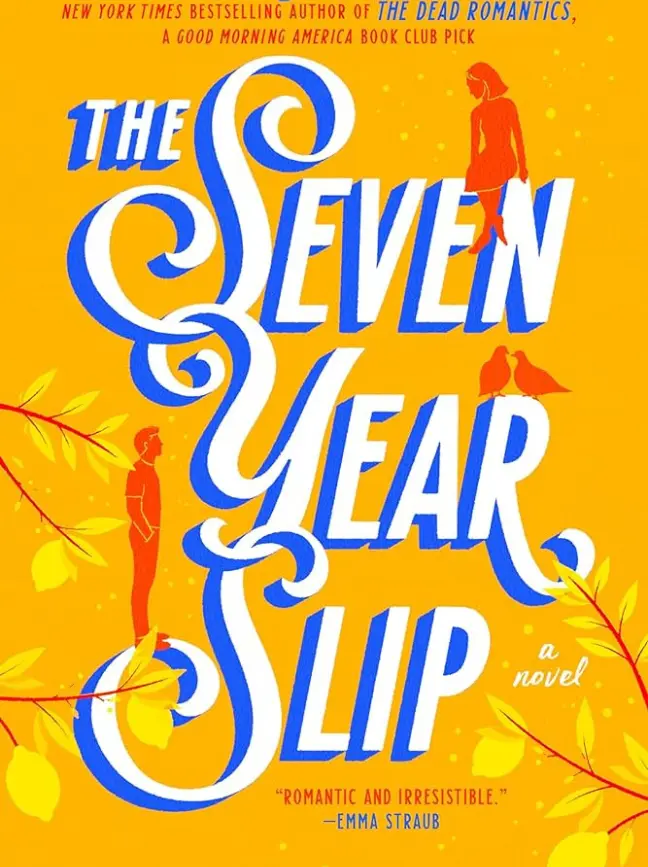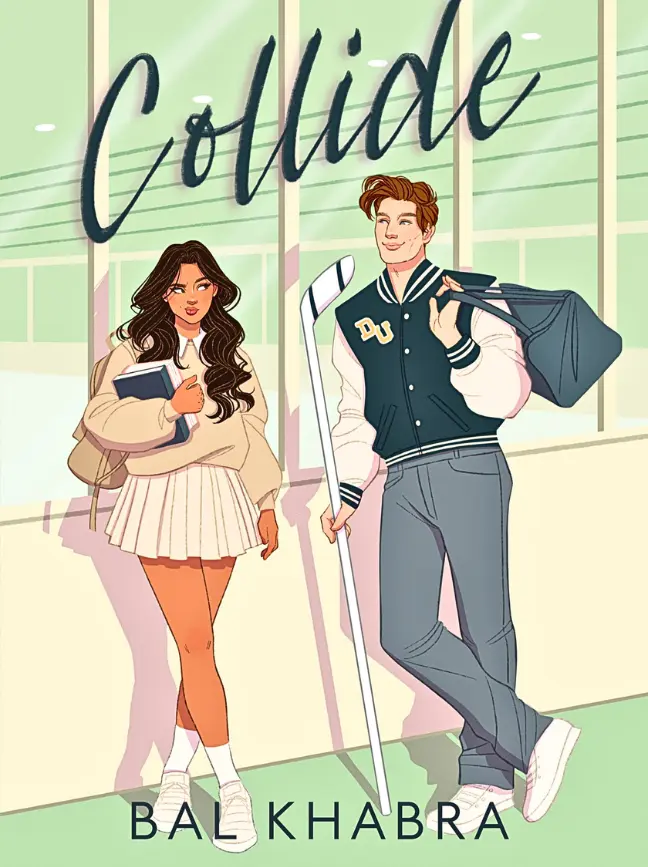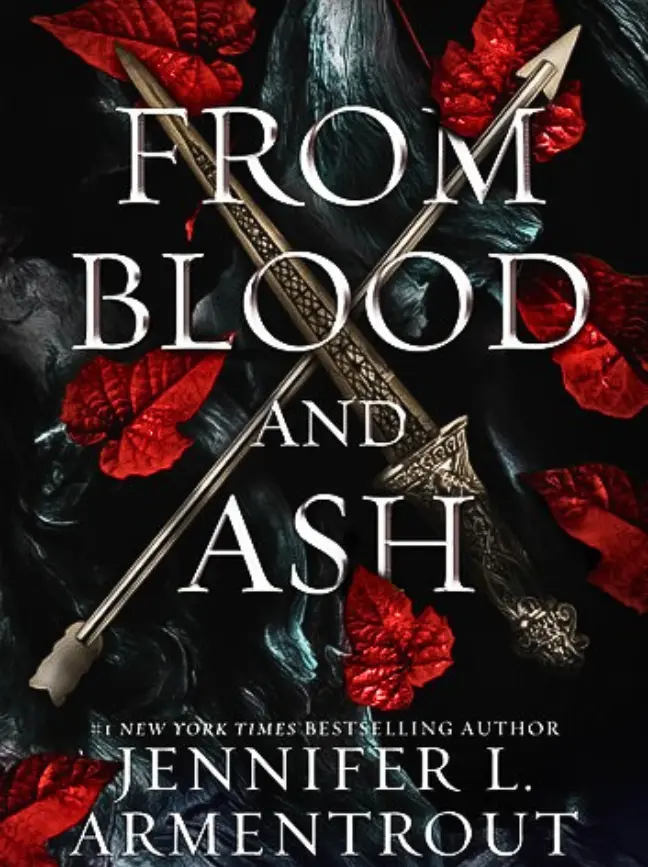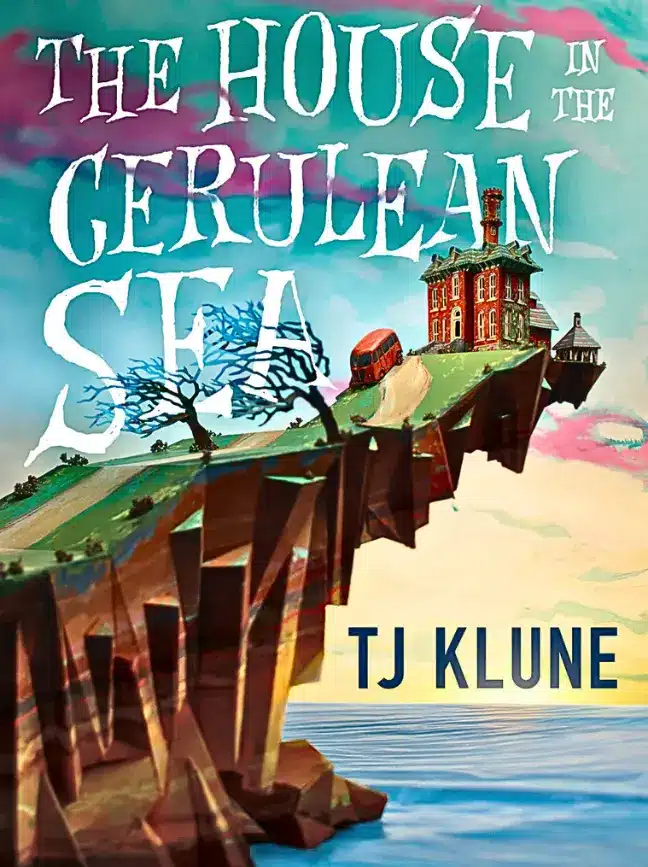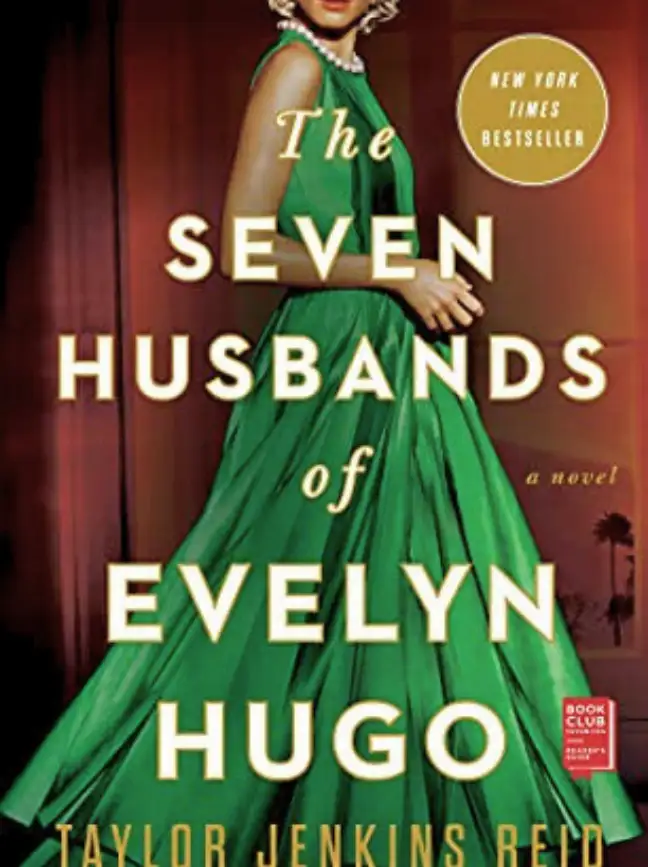The skies opened up. The deluge began. Pino followed Mimo, sprinting toward the fashion district, getting drenched and not caring. Anna was going to the movies with him. She’d said yes. It made him almost delirious. The brothers were soaked, and lightning was striking by the time they dodged into Valigeria Albanese, Albanese Luggage, their uncle’s store and
factory in a rust-colored building at #7 Via Pietro Verri.
Dripping wet, the boys went into the long, narrow shop, which enveloped them with the rich smell of new leather. The shelves were stacked with fine attaché cases, handbags and satchels, suitcases and trunks. The glass displays featured woven leather wallets and beautifully tooled cigarette cases and portfolios. There were two customers in the shop, one an older woman close to the door, and beyond her at the far end, a Nazi officer in a black and gray uniform.
Pino watched him, but heard the older woman say, “Which one, Albert?”
“Go with your heart,” said the man waiting on her behind the counter. Big, barrel-chested, and mustached, he wore a beautiful mouse-gray suit, starched white shirt, and a jaunty blue polka-dot bow tie.
“But I love them both,” his customer complained.
Stroking his mustache and chuckling, he said, “Then buy them both!” She hesitated, giggled. “Maybe I will, then!”
“Excellent! Excellent!” he said, rubbing his hands. “Greta, can you get me boxes for this magnificent lady with such impeccable taste?”
“I’m busy at the moment, Albert,” replied Pino’s Austrian aunt Greta, who was waiting on the Nazi. She was a tall, thin woman with short brown hair and an easy smile. The German was smoking and examining a leather- wrapped cigarette case.
Pino said, “I’ll get the boxes for you, Uncle Albert.”
Uncle Albert shot Pino a look. “Dry off before you handle them.”
Thinking about Anna, Pino headed toward the factory door beyond his aunt and the German. The officer pivoted to watch Pino as he passed, revealing oak leaves on his lapels that identified him as a colonel. The flat front of his officer’s cap bore a Totenkopf, a small skull-and-bones emblem below an eagle that clutched a swastika. Pino knew he was Geheime Staatspolizei, Gestapo, a high-ranking officer in Hitler’s secret police. Medium in height and build, with a narrow nose and joyless lips, the Nazi had flat dark eyes that gave away nothing.
Feeling rattled, Pino went through the door and into the factory, a much larger space with a higher ceiling. Seamstresses and cutters were putting away their work for the day. He found some rags and dried his hands. Then he grabbed two cardboard boxes embossed with the Albanese logo and started back toward the shop, his thoughts happily returning to Anna.
She was beautiful, and older, and . . .
He hesitated before pushing through the door. The Gestapo colonel was just leaving, walking out into the rain. Pino’s aunt stood at the door, watching the colonel go and nodding.
Pino felt better the instant she shut the door.
He helped his uncle pack the two purses. When the last customer left, Uncle Albert told Mimo to lock the front door and to put a “Closed” sign in the window.
When Mimo had done so, Uncle Albert said, “Did you get his name?” “Standartenführer Walter Rauff,” Aunt Greta replied. “The new
Gestapo chief for northern Italy. He came in from Ukraine. Tullio’s keeping an eye on him.”
“Tullio’s back?” Pino said, surprised and happy. Tullio Galimberti was five years older, his idol, and a close family friend.
“Yesterday,” Uncle Albert said.
Aunt Greta said, “Rauff said the Gestapo is taking over the Hotel Regina.”
Her husband grumbled. “Who does Italy belong to—Mussolini or Hitler?”
“It doesn’t matter,” Pino said, trying to convince himself. “The war will be over soon, and the Americans will come, and there will be jazz
everywhere!”
Uncle Albert shook his head. “That depends on the Germans and Il Duce.”
Aunt Greta said, “Have you looked at the time, Pino? Your mother expected you two home an hour ago to help prepare for their party.”
Pino’s stomach fell. His mother was not someone to disappoint.
“I’ll see you later?” he asked, heading for the door, with Mimo following.
“We wouldn’t miss it,” Uncle Albert said.
By the time the boys made it to #3 Via Monte Napoleone, Le Borsette di Lella, his parents’ purse shop, was closed. Thinking of his mother, Pino grew fearful. He hoped his father would be around to tame the human hurricane. Savory odors wafted to them as they climbed the stairs: lamb and garlic simmering, freshly shredded basil, and bread warm from the oven.
They opened the door into the family’s opulent flat, which was abuzz with activity. The regular maid and a temporary hire bustled about the dining room, setting out cut crystal, silverware, and china for the buffet. In the drawing room, a tall, thin, stoop-shouldered man stood with his back to the hall holding a violin and bow and playing a piece Pino didn’t recognize. The man hit a sour note and stopped, shaking his head.
“Papa?” Pino called quietly. “Are we in trouble?”
Michele Lella lowered his violin and turned, chewing the inside of his cheek. Before he could answer, a six-year-old girl came storming down the hall from the kitchen. Pino’s little sister, Cicci, halted in front of him and demanded, “Where have you been, Pino? Mama is not happy with you. Or you, Mimo.”
Pino ignored her, focusing instead on the locomotive in an apron chugging out of the kitchen. He swore he could see steam coming out his mother’s ears. Porzia Lella was at least thirty centimeters shorter than her elder son, and at least twenty kilograms lighter. But she marched up to Pino, tore off her glasses, and shook them at him.
“I asked you to be home at four, and here it is five fifteen,” she said. “You act like a child. I can rely on more from your sister.”
Cicci turned up her nose and nodded.
For a moment, Pino did not know what to say. But then he was inspired to adopt a forlorn look and hunch over and clutch his belly.
“I’m sorry, Mama,” he said. “I ate some street food. It gave me the distress. And then we were caught in the lightning and forced to wait at Uncle Albert’s.”
Porzia crossed her arms and eyed him. Cicci adopted the same skeptical pose.
Their mother looked to Mimo. “Is that true, Domenico?” Pino glanced warily at his brother.
Mimo bobbed his head. “I told him the sausage didn’t look right, but he would not listen. Pino had to stop in three cafés to use the toilet. And there was a Gestapo colonel at Uncle Albert’s shop. He said the Nazis are taking over the Hotel Regina.”
His mother paled. “What?”
Pino grimaced and bent over even more. “I need to go right now.”
Cicci still looked suspicious, but Pino’s mother’s anger had moved on to worry. “Go. Go! And wash your hands afterward.”
Pino hurried down the hall.
Behind him, Porzia said, “Where are you going, Mimo? You’re not sick.”
“Mama,” Mimo complained, “Pino gets out of everything.”
Pino did not wait to hear his mother’s reply. He rushed past the kitchen and the incredible smells and climbed the staircase that led to the second floor of the apartment and the water closet. He went inside for a respectable ten minutes and spent it thinking about every moment he’d had with Anna, especially how she’d looked back at him in amusement from across the trolley tracks. He flushed, lit a match to cover the lack of foul odor, and lay on his bed, the shortwave tuned to the BBC and a jazz show that Pino almost never missed.
Duke Ellington’s band was playing “Cotton Tail,” one of his recent favorites, and he closed his eyes to marvel at Ben Webster’s tenor sax solo. Pino had loved jazz from the first time he heard a recording of Billie Holiday and Lester Young performing “I Can’t Get Started.” As heretical as it was to say so in the Lella household—where opera and classical music reigned supreme—from that moment forward, Pino believed jazz was the greatest musical art form. Because of that belief, he longed to go to the United States, where jazz was born. It was his fondest dream.
Pino wondered what life in America would be like. The language wasn’t a problem. He’d grown up with two nannies, one from London and another from Paris. He’d spoken all three languages almost from birth. Was there jazz everywhere in America? Was it like this cool curtain of sound behind every moment? And what about the American girls? Were any of them as beautiful as Anna?
“Cotton Tail” wound down. Benny Goodman’s “Roll ’Em” began with a boogie-woogie beat that wound up into a clarinet solo. Pino jumped up off the bed, kicked off his shoes, and started dancing, seeing himself with beautiful Anna doing a crazy Lindy Hop—no war, no Nazis, only music, and food, and wine, and love.
Then he realized how loud the music was, turned it down, and stopped dancing. He didn’t want to bring his father upstairs for another argument about music. Michele despised jazz. The week before, he caught Pino practicing Meade Lux Lewis’s boogie tune “Low Down Dog” on the family Steinway, and it was as though he’d desecrated a saint.
Pino took a shower and changed clothes. Several minutes after the cathedral bells tolled 6:00 p.m., Pino crawled back on the bed and looked out the open window. With the thunder clouds a memory, familiar sounds echoed up from the streets of San Babila. The last shops were closing. The wealthy and fashionable of Milan hurried toward home. He could hear their animated voices as one, a chorus of the street—women laughing at some small joy, children crying at some minor tragedy, men arguing over nothing but the sheer Italian love of verbal battle and mock outrage.
Pino startled at the apartment bell ringing downstairs. He heard voices bidding hellos and welcomes. He glanced at the clock. It was 6:15 p.m. The movie started at seven, and it was a long walk to the theater and Anna.
Pino had one leg out the window and was feeling for a ledge that led to a fire escape when he heard a sharp laugh behind him.
“She won’t be there,” Mimo said.
“Of course she will,” Pino said, making it out the window.
It was a solid nine meters to the ground, and the ledge was not very wide. He had to smear his back to the wall and shuffle sideways to another window that he climbed through to gain access to a back staircase. A minute later, though, he was on the ground, outside, and moving.
The cinema’s marquee was unlit due to the new blackout rules. But Pino’s heart swelled when he saw the names of Fred Astaire and Rita Hayworth on the poster. He loved Hollywood musicals, especially those with swing music. And he’d had dreams about Rita Hayworth that . . . well . . .
Pino bought two tickets. As other patrons filed into the theater, he stood searching the street and sidewalks for Anna. He waited until he started to suffer the empty, devastating knowledge that she was not coming.
“I told you,” Mimo said, sliding up beside him.
Pino wanted to be angry but couldn’t. Deep down, he loved his younger brother’s guts and bullishness, his brains and street smarts. He handed Mimo a ticket.
The boys went inside and found seats.
“Pino?” Mimo said quietly. “When did you start to grow? Fifteen?”
Pino fought a smile. His brother was always fretting that he was so short.
“Not until I was sixteen, really.” “But it could be earlier?” “Could be.”
The houselights went down and a Fascist propaganda newsreel began. Pino was still depressed by Anna’s standing him up when Il Duce appeared on the screen. Dressed the part of the commanding general in a medal- strewn jacket with waist belt, tunic, breeches, and gleaming black knee-high riding boots, Benito Mussolini walked with one of his field commanders on a bluff above the Ligurian Sea.
The narrator said the Italian dictator was inspecting fortifications. On- screen, Il Duce’s hands were clasped behind his back as he walked. The emperor’s chin pointed at the horizon. His back was arched. His chest puffed toward the sky.
“He looks like a little rooster,” Pino said. “Shhhh!” Mimo whispered. “Not so loud.”
“Why? Every time you see him, he looks like he wants to go, ‘Cock-a- doodle-doo.’”
His brother sniggered while the newsreel went on to boast of Italy’s defenses and of Mussolini’s growing stature on the world stage. It was pure propaganda. Pino listened to the BBC every night. He knew what he was watching wasn’t true, and he was happy when the newsreel ended and the movie began.
Pino was soon swept up in the film’s comic plot and loving every scene where Hayworth danced with Astaire.
“Rita,” Pino said with a sigh after a series of spiral moves had swept Hayworth’s dress about her legs like a matador’s cape. “She’s so elegant, just like Anna.”
Mimo’s face screwed up. “She stood you up.” “But she was so beautiful,” Pino whispered.
An air raid siren wailed. People began to yell and jump up from their seats.
The screen froze in close-up on Astaire and Hayworth dancing cheek to cheek, their lips and smiles to the panicking crowd.
As the film melted up on the screen, antiaircraft guns cracked outside the theater, and the first unseen Allied bombers cleared their bays, releasing an overture of fire and destruction that played down on Milan.


